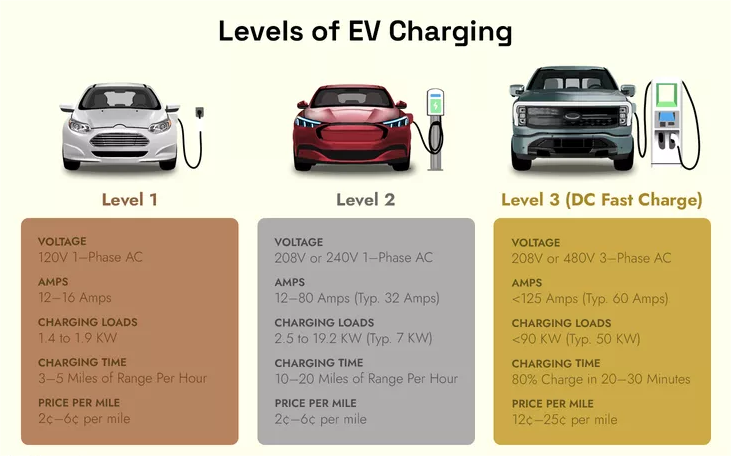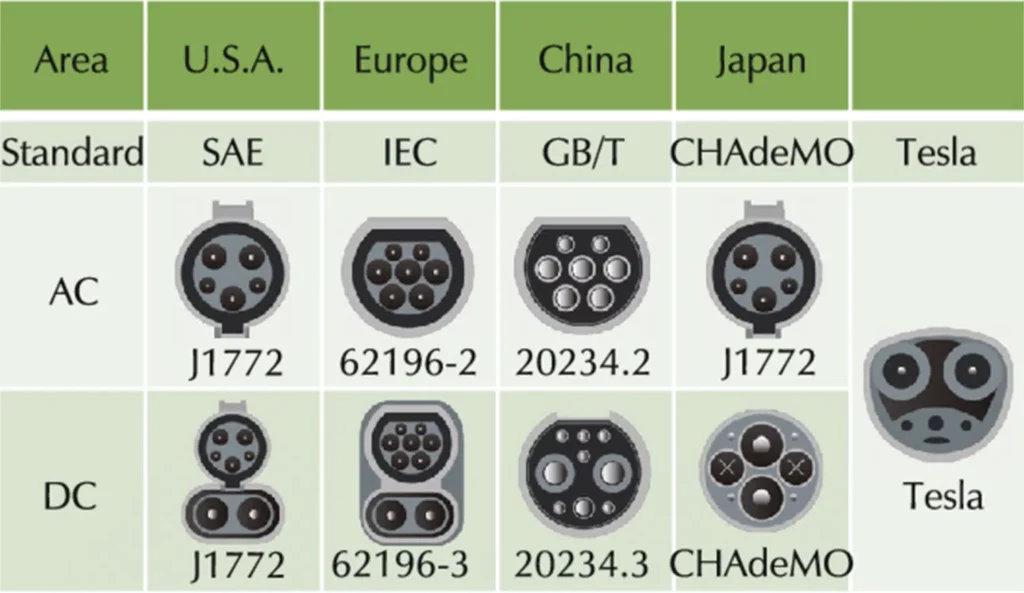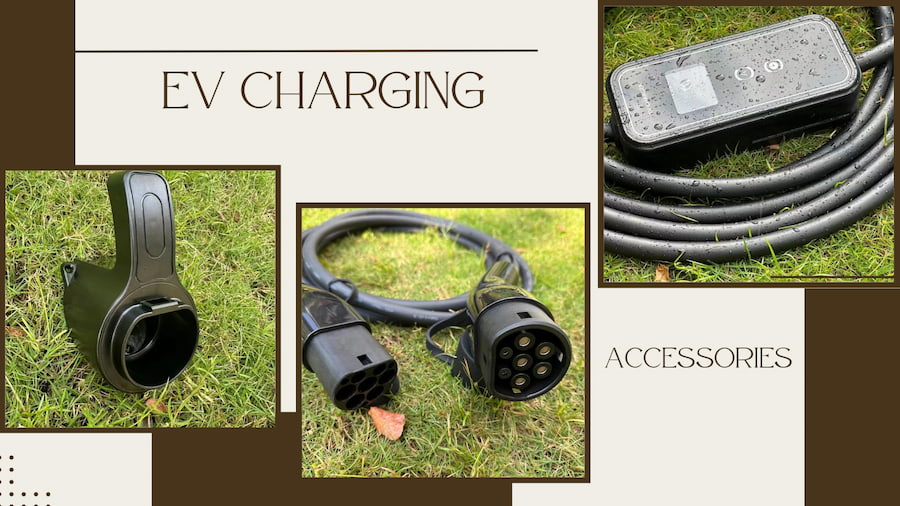Overview of EV Charging Accessories
As an electric vehicle (EV) owner, it’s crucial to have the right charging accessories to ensure a seamless and efficient charging experience. EV charging accessories encompass various components that play a vital role in powering up your vehicle. These include EV charging cables, charging adapters, and charging stations.
EV charging cables are essential for connecting your EV to a power source. They come in different types and lengths, allowing you to choose the one that suits your needs. Charging adapters enable compatibility with different charging standards, ensuring you can charge your EV at various stations.
Moreover, EV charging stations provide a dedicated space for recharging your vehicle. They come with features such as different power outputs and connectivity options like Wi-Fi. Understanding these accessories’ types and features is crucial for every EV owner to make informed decisions about their charging setup.
Types of EV Charging Accessories
When it comes to EV charging, there are two primary accessories that every EV owner should be familiar with: EV charging cables and charging adapters.
1. EV Charging Cables
EV charging cables are the lifeline between your electric vehicle and the power source. They come in different types, such as Type 1 (J1772), Type 2 (Mennekes), and CCS (Combined Charging System). Each type is designed for specific charging standards and plug types used by different EV manufacturers.
Selecting the right cable for your EV is crucial to ensure compatibility and efficient charging. Factors to consider include the charging standard supported by your vehicle, the maximum charging capacity it can handle, and any additional features like weatherproofing or built-in safety mechanisms.
2. Charging Adapters
Charging adapters play a vital role in enabling compatibility between your EV and various charging stations. Different regions or countries may have different charging standards or plug types, making adapters necessary for hassle-free charging.
For example, if you’re traveling internationally with your electric vehicle, you might encounter different plug types or standards than what your vehicle supports. In such cases, having the appropriate adapter allows you to connect to local charging infrastructure without any issues.
It’s important to research and understand the specific adapters required for your EV model and the regions you plan to visit. By having the right adapters on hand, you can expand your options for accessing compatible charging stations wherever you go.
The Importance of EV Charging Cables
EV charging cables are not just simple cords; they play a crucial role in ensuring safe and efficient charging for your electric vehicle. Here are two key aspects highlighting the importance of these cables:
1. Safety and Efficiency
High-quality EV charging cables are designed to meet stringent safety standards, providing peace of mind during the charging process. They are built with robust insulation and shielding materials to protect against electrical faults, overheating, and potential hazards. Using reliable cables reduces the risk of accidents or damage to your vehicle.
In addition to safety, the efficiency of charging is also influenced by the quality of the cable. High-quality cables minimize energy loss during transmission, allowing for faster and more efficient charging sessions. It’s essential to invest in reputable brands and certified cables that meet industry standards for optimal performance.
Proper cable maintenance is equally important. Regularly inspecting the cable for any signs of wear or damage, such as fraying or exposed wires, ensures continued safety and reliability. Storing the cable properly when not in use can also extend its lifespan.
2. Length and Flexibility
Considerations for cable length and flexibility depend on your specific needs and charging setup. The standard length is 5M of GREENC’s EV cable, but the cable length and color is customizable, Longer cables offer greater convenience as they provide flexibility in reaching different power outlets or parking spaces. This is particularly useful when encountering crowded public charging stations or when you need to park further away from an available outlet.
Moreover, longer cables allow you to charge your EV without having to maneuver it too close to the power source. This can be beneficial if you have limited space or obstacles around your parking area.
On the other hand, shorter cables may be more manageable for personal home charging setups where proximity between the vehicle and power source is easily achievable.
Ultimately, choosing a cable length that suits your requirements enhances your overall EV ownership experience by providing convenience and flexibility during charging sessions.
Features of EV Charging Stations
EV charging stations are more than just a power source for your electric vehicle. They come equipped with various features that enhance the charging experience. Here are two key features to consider when choosing an EV charging station:
1. Power Output

EV charging stations offer different power levels, typically categorized as Level 1, Level 2, and Level 3 (DC Fast Charging). The power output determines how quickly your vehicle can recharge its battery.
Level 1 chargers provide the slowest charging speed, suitable for overnight or long-duration charging at home using a standard household outlet. Level 2 chargers offer faster charging times and are commonly found in public spaces or dedicated home installations with higher voltage outlets.
Level 3 chargers, also known as DC Fast Chargers, provide the fastest charging speeds available. These high-power chargers are typically found along highways or in commercial areas and can charge an EV significantly faster than Level 1 or Level 2 chargers.
It’s essential to match the power output of the charging station with your EV’s charging capabilities. Some vehicles may not support higher power levels, so it’s crucial to check your vehicle’s specifications before selecting a compatible charging station.
2. Connectivity and Smart Features
Modern EV charging stations often come equipped with connectivity options and smart features that enhance convenience and control over the charging process. Wi-Fi connectivity allows you to monitor and manage your charging sessions remotely through smartphone apps or web portals.
Smart features include real-time monitoring of energy consumption, scheduling future charges during off-peak hours for cost savings, and receiving notifications when your vehicle is fully charged or if any issues arise during the process.
Remote monitoring and control enable you to track your vehicle’s state of charge, adjust settings, and even start or stop a charge from anywhere with an internet connection. These features provide flexibility and peace of mind by allowing you to manage your EV’s charging needs efficiently.
Considering the connectivity and smart features of an EV charging station can greatly enhance your overall charging experience, providing convenience and control at your fingertips.
Compatibility with Various Electric Vehicles
When it comes to EV charging, compatibility is a crucial factor to consider. Electric vehicles come with different charging standards and plug types, making it essential to ensure compatibility between your vehicle and the charging infrastructure. Here are two key aspects to keep in mind:
1. Charging Standards
Different EV manufacturers may adopt various charging standards, such as CHAdeMO, CCS (Combined Charging System), or Tesla’s proprietary Supercharger network. These standards dictate the type of connectors and protocols used for charging.
To ensure compatibility, it’s important to identify the charging standard supported by your EV model. This information can usually be found in the vehicle’s manual or specifications provided by the manufacturer. Once you know your EV’s charging standard, you can select a compatible charging station that supports the same standard.
2. Plug Types

In addition to different charging standards, there is also a variety of plug types used by different electric vehicles. Common plug types include Type 1 (J1772), Type 2 (62196-2), CHAdeMO, CCS Combo 2, and Tesla’s proprietary connector.
Understanding plug compatibility is crucial when selecting an EV charging station or cable. Some chargers may have multiple connectors or adapters available to accommodate various plug types. Alternatively, you may need to use an adapter specifically designed for your vehicle’s plug type to connect it to a particular charger.
It’s important to research and understand the plug type required for your specific EV model and ensure that any accessories or adapters you purchase are compatible with both your vehicle and the desired charging infrastructure.
By considering both the charging standard and plug type of your electric vehicle, you can ensure seamless compatibility with various charging stations and accessories, allowing for hassle-free recharging wherever you go.
Enhance Your EV Charging Experience
To enhance your EV charging experience, there are a few key considerations to keep in mind.
Firstly, invest in high-quality charging accessories such as cables and adapters. These accessories ensure safe and efficient charging, providing peace of mind during the process.
Secondly, consider your EV’s charging capabilities and compatibility when selecting charging stations or accessories. Matching the power output, charging standards, and plug types with your vehicle’s specifications ensures seamless compatibility and optimal performance.
Lastly, take advantage of smart features and remote control options offered by some charging stations. These features allow you to monitor and manage your charging sessions conveniently from anywhere, enhancing flexibility and control over your EV’s recharging needs.
By following these guidelines and making informed choices about your EV charging setup, you can maximize efficiency, convenience, and safety throughout your electric vehicle ownership journey.










